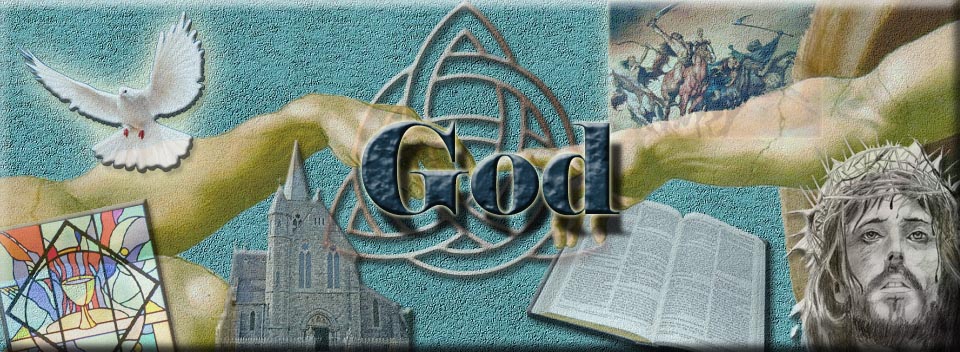
The Divine Names and Titles.
Part XIII. — THE LORD OF HOSTS.
Jehovah Zebaioth — יהה צבאוֹת.
By the Rev. Dr. Bullinger.
Taken from Things to Come Magazine, June, 1897
| IN speaking of the Jehovah Titles we included only the special ones, omitting those that occur more frequently, such as Jehovah-Mechadeschem, Jehovah who sanctifieth, and Jehovah Zebaioth — The Lord of Hosts. The latter, however, deserves a separate notice on account of its importance, and the frequency of its occurrence. There are three variations of form: — Jehovah of hosts, which occurs 229 times. Jehovah God ( Elohe ) of hosts, which occurs 27 times. God of hosts (with or without Jehovah) 7 times. It seems indeed as if "the Lord of hosts" were an abbreviated form of "Jehovah Elohe Zebaioth," for the word Jehovah cannot be construed with a genitive. Hence the combination of the two words "Jehovah Zebaioth" is necessarily elliptical where the general term "God of" (Psa. lix. 6; lxxx. 5, 8, 15, 20; lxxxiv. 9, etc.) or Adonai (Isa. x. 16) is to be supplied. The Title has given rise to much discussion, and learned treatises have been written upon it, especially in Germany. Some take "hosts" as meaning the stars, others, the angels, and others Israel. The first is soon ruled out by observing that the stars are always Tsaba, host, in the singular. (See Gen. ii. 1; Deut. iv. 19; xvii. 3; 2 Kings xvii. 16; xxi. 3, 5; xxiii. 4, etc.). That it may include the angelic hosts cannot be denied. But that it generally means the Lord of the hosts of His people is tolerably certain. Indeed, we have the converse in the opposite expression "the hosts of the Lord," and "the Lord's host" in Exod. xii. 41; Josh, v. 14, 15. "The Lord of hosts" means therefore Jehovah of the hosts or armies of Israel, the supreme Leader, Commander, and Governor of His people. An examination of the use of this Title will clearly show what meaning it is intended to include and convey. Its first occurrence is in the Books of Samuel (1 Sam. i. 3, n; iv. 4), where Israel is reduced to a low estate. The "Judges'' had failed, and under the decrepit high Priest Eli who could not govern his own house, much less the host of the Lord, the Sanctuary was desecrated. God was blasphemed, and the Philistines are the oppressors of Israel. In this helpless and apparently hopeless condition the godly Elkanah and Hannah remembered that though man had failed, Jehovah could not fail: that though Israel was without a human Leader and Governor there was still "Jehovah Zebaioth" — the Lord of hosts. If Israel was to be delivered and restored, a righteous judge must be raised up, and sin and idolatry must be put away. The call of Samuel was therefore associated with the announcement of judgment on the degraded priesthood; and the raising up of a prophet of the Lord (in the person of Samuel) was again associated with failure on the part of man. Judgment was to begin upon the house of Eli and the house of God (1 Sam. iv.), and afterwards upon His enemies (1 Sam. v. to vii. 14), leading up through renewed failure (Saul) to the settlement of God's Covenant with David (2 Sam. vii.) for the coming of one who should rule His people in Righteousness (2 Sam. xxiii. 3, 4). Thus Jehovah Zebaioth is the Divine Ruler and Leader and Commander of His people, and the first occurrence or the Title gives us the key to its interpretation. We have said that the angelic hosts are sometimes intended. This is clear from Gen. xxxii. 2, where they are spoken of as "God's host." See also Deut. xxxiii. 2. But it is in Joshua v. 14, 15, that we have the real connection between the two, showing that the one is the basis of the other. Jehovah Jesus appears to Joshua; He who was the Prince of the angelic hosts announces His coining as "the Captain of the Lord's host." He is Jehovah Zebaioth — and here is the key to the use of the Title in the Psalms and the Prophets. It is the title specially connected with the setting up of the true kingdom by the Divine King of Israel. And it is given at the moment of setting up of human kings to show us that the earthly monarchy of Israel was by no means to eclipse or supersede the invisible monarchy of Jehovah. The first occurrence in the Book of Psalms asks and answers the important question: —
And the second is like unto it, where the true refuge in the midst of enemies and troubles is revealed: —
A reference to the other occurrences of this title will show the same connection and associate it with the Captain of the Lord's host, coming down to Joshua of old to lead His people in the secure and everlasting possession of their inheritance.
Continued in Part 14 |
||
|
||
-
Site Navigation
 Home
Home What's New
What's New Bible
Bible Photos
Photos Hiking
Hiking E-Books
E-Books Genealogy
Genealogy Profile
Free Plug-ins You May Need
Profile
Free Plug-ins You May Need
 Get Java
Get Java.png) Get Flash
Get Flash Get 7-Zip
Get 7-Zip Get Acrobat Reader
Get Acrobat Reader Get TheWORD
Get TheWORD

